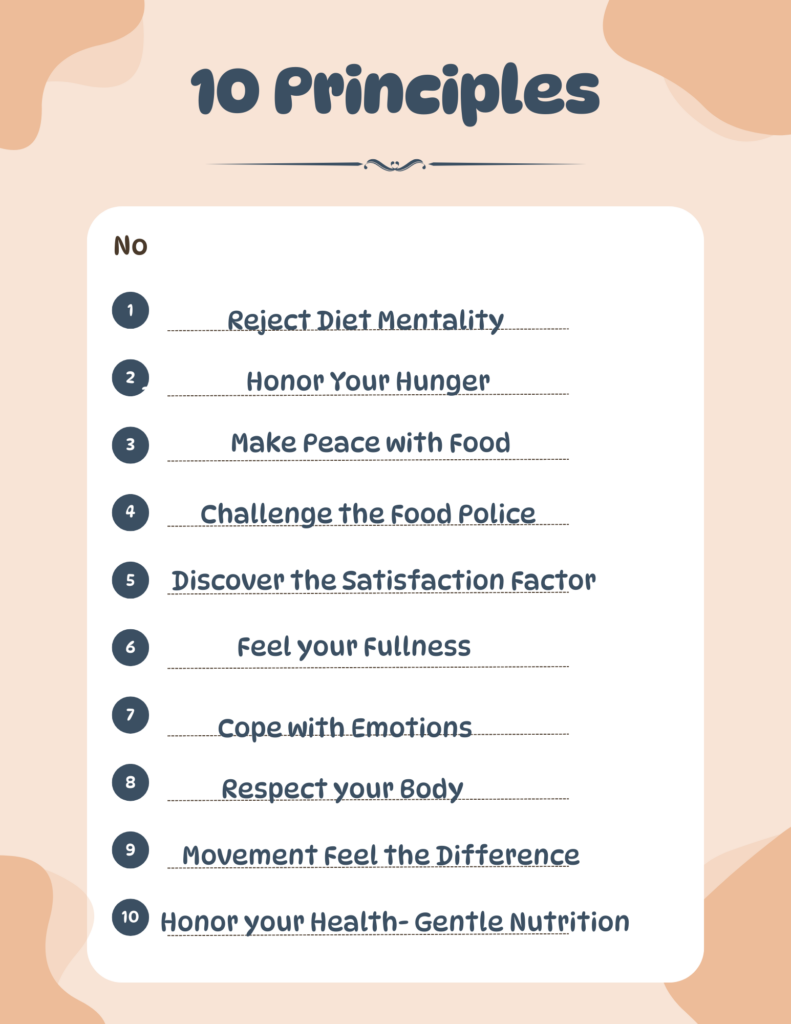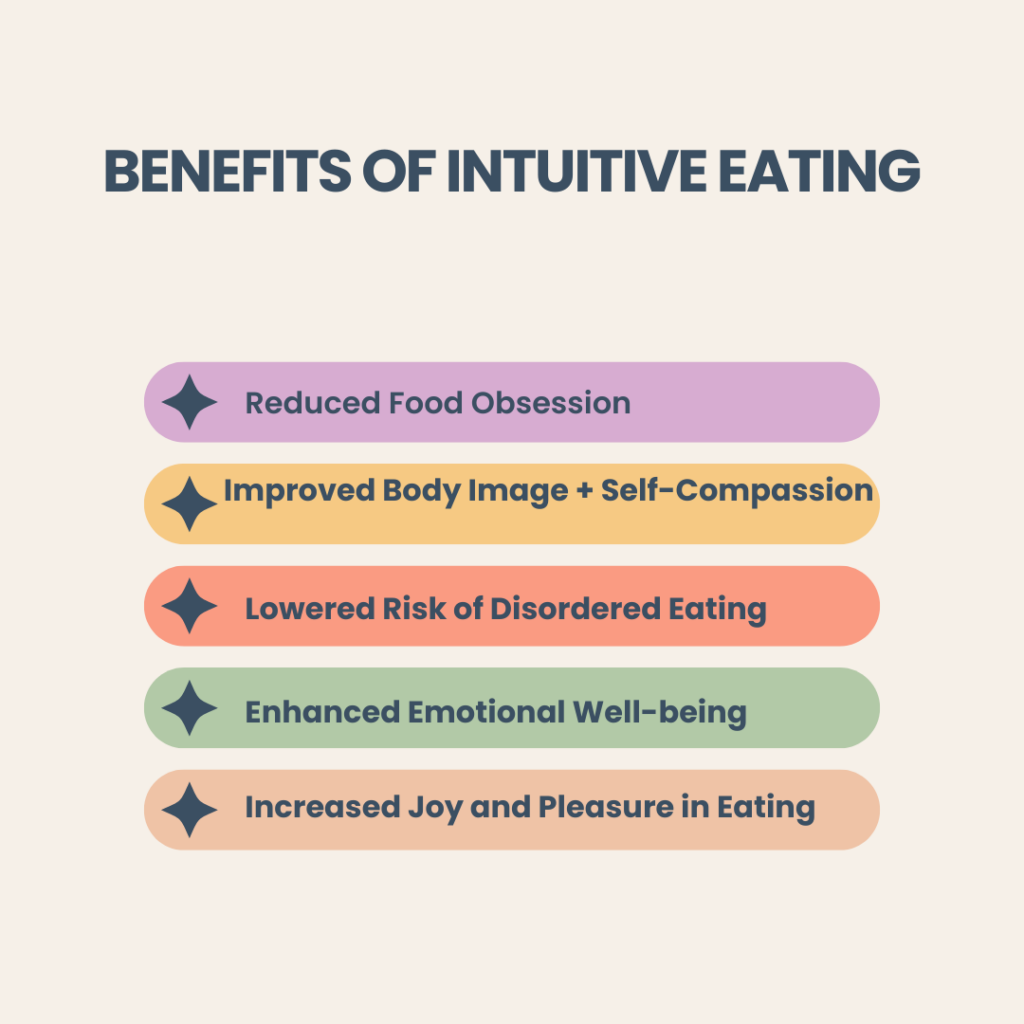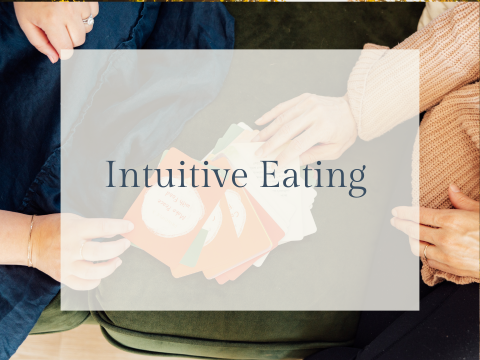Angela Prior
lcsw, ryt, ciec
hey there!
The AP blog is here for all things mental health, embodiment, yoga, and burnout. Poke around and take what you need.
meet angela
What is Intuitive Eating?
May 12, 2025
Intuitive Eating is a weight-inclusive, evidence-based approach, offers a powerful framework for both recovering from and preventing eating disorders Developed by Evelyn Tribole M.S., RD and Elyse Resch M.S. RD in 1995. To date there have been over 125 studies on Intuitive Eating showing benefit for health and wellbeing
A little history on Intuitive Eating: Evelyn and Elyse came together as two dieticians who were frustrated that it seemed their clients were not having success and their perfectly prepared meal plans and diets weren’t working for long term weight loss. When I say, they weren’t working I mean their clients would lose weight and be o so happy and their work would end. Then in 6 months, 8 months, or a year their clients would call them back full of guilt asking for their help because they had gained the weight back or more.
From this experience Evelyn and Elyse sat down and began sorting through the data that existed on dieting, . They began to ask themselves what could be done differently? What could they do differently in their work? And it was then they began building the framework of the 10 Intuitive Eating Principles.

The framework is built around deconstructing and reconstructing one’s relationship with food by stripping away the rules and messages that exist around food and body. Allowing them to reconstruct and build a new way to relate to food that is really about going back to their innate knowing with food before the world told them something different.
Consistently the research being done on Intuitive Eating continues to show that the benefits extend far beyond just what you eat. By learning to trust your internal cues, reject the diet mentality, and cultivate a positive relationship with food and your body, you can move towards sustainable well-being, increased energy, and a greater sense of peace. With some of the benefits of Intuitive eating being:

To begin incorporating intuitive eating into your life, start by tuning into your body’s hunger and fullness cues. Pay attention to the physical sensations that signal when you’re truly hungry and when you’ve had enough, aiming to eat when you’re moderately hungry and stop when you’re comfortably full, not stuffed. Next, challenge the food rules you’ve internalized from diet culture. Give yourself unconditional permission to eat all foods, recognizing that restriction often leads to cravings and overeating. Begin to make peace with food, letting go of the labels of “good” and “bad” and understanding that all foods can fit into a balanced life. Practice coping with your emotions with kindness, finding ways other than food to comfort or distract yourself when experiencing stress, sadness, or boredom. Finally, respect your body and appreciate its inherent wisdom. Focus on how different foods make you feel, prioritizing nourishment and enjoyment rather than solely focusing on weight or appearance. This journey is a process, so be patient and kind to yourself as you learn to trust your body’s natural signals.
Resources that may be helpful
Feed Yourself and Your Family Podcast Episode
Kitchen Intuition Podcast Episode
Angela Prior is a certified intuitive eating counselor and you can find other providers in your area here

eight free meditations
To Support Your Mental Health
Let's Work Together
Meet Our Team of Therapists + Yoga Instructors